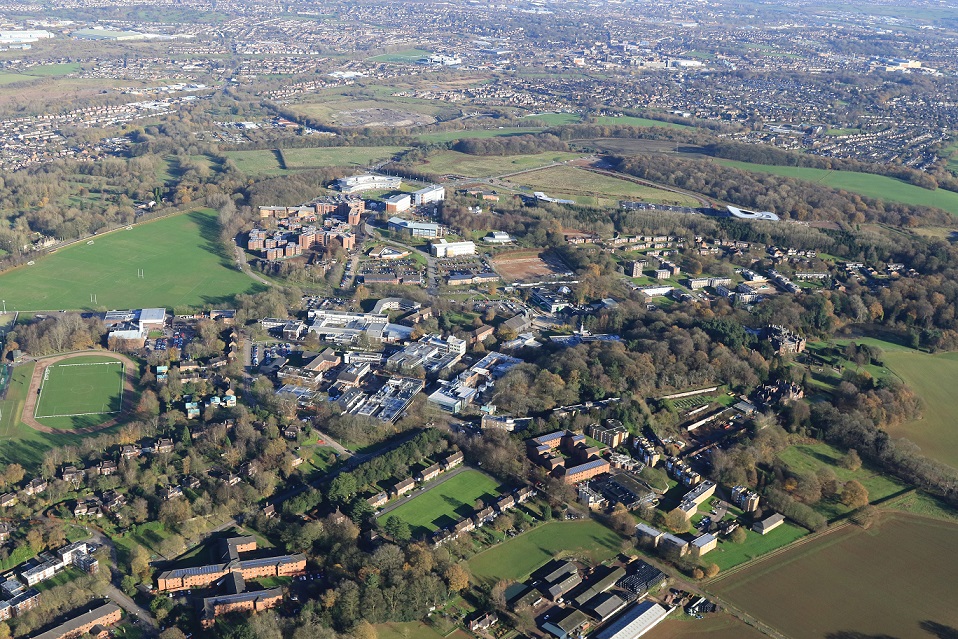Keele University is to become a living laboratory for emerging low carbon and smart energy technologies in what is thought to be the largest scheme of its type in Europe and North America.
Siemens has been appointed to deliver the Smart Energy Network Demonstrator (SEND) which will turn the university’s private utilities network into a national test bed for new smart energy technologies and services in partnership with business and industry.
As well as the installation of at least 5MW of renewables, with the university targeting solar and wind power initially with an upcoming tender, the project at the West Midlands-based university campus will see the digitalisation of 24 substations, the installation of over 1,500 smart meters and 500 home controllers, and anywhere between 5-10MW of energy storage.
The project is made possible by the university’s origins following the second world war when the founders of the institution bought the original property from the US military, who had used it as an army base during the conflict.
Situated on a green field site, all of the utility networks had to be installed and while connected to the public network, the university has owned and operated its own independent network for over 60 years.
Speaking to Clean Energy News about the project Ian Madley, head of partnerships and engagement at Keele University, explained: “We have housing, student accommodation, the university and a science park; an environment which looks a little bit like a small town. There’s about 5,000 people that live on the site including student accommodation, and about 12,000 that work on the site.
“With all of that being within a private wire network, we’re effectively able to create something where you can come along with a new technology, plug and play into our system and know that you’re working with a real living environment.
“Siemens are going to take the system that we’ve been running for 60 years and turn that into a system that not just delivers energy but is also a laboratory, configuring all of those systems to be able to accept technologies.
“Whether it’s a wind turbine, a power to gas device, a storage device, even a novel building system, we want to be able to do anything and to have the ability to measure and capture information about that so it can be used by our own researchers, but also external researchers and businesses, to
The forefront of the new, more sustainable, energy landscape
The demonstrator, expected to be completed by the end of 2020, will be a representation of “real world” infrastructures in the UK with a mix of technologies from different suppliers used on site. This will enable a smart analysis of energy consumption for the campus, so that demand can be better managed locally according to factors such as the number of students on site at any one time and energy needs of individual buildings.
Siemens will be responsible for future-proofing the site for as many possible technologies as possible, as Madley explained: “We have no idea what research is going to take place but we have a pretty good idea of what you need to put in a laboratory to enable that research to take place, and that’s effectively what we’ve asked Siemens to do with our energy system.”
Professor Mark Ormerod, deputy vice-chancellor and provost of Keele University, added: “SEND is a fantastic example of innovation delivering really tangible results for Keele University, businesses and the wider UK economy, as well as major societal benefits.
“It puts Keele and our campus at the forefront of the new, more sustainable, energy landscape – the technology being deployed represents a revolution in smart energy technology for UK universities.
The team behind the project has spent a decade pulling together £15 million in funding for the project, with around £5 million from the UK government, £9 million from the European Union’s Regional Development Fund, and £1 million of investment from the university itself.
Cash secured from the Department for Business, Energy and Industrial Strategy (BEIS) is predicated on a number of deliverable factors including a commitment to reduce carbon use on site by 30% by 2021 and that the project will offer a truly national test centre to benefit the entire UK energy supply chain.
Carl Ennis, managing director at Siemens Energy Management, said: “This landmark project will provide a society-based demonstrator for the research community, the energy industry, and local communities. It will be at the centre of a smart and flexible network of energy supply and storage – which will reduce emissions, improve security of supply to the campus and be open to further innovation from the academic community.
“We are seeing decentralised energy as a key trend in the UK and are delighted to work with an innovative partner such as Keele University to drive this intelligent energy technology forward.”






